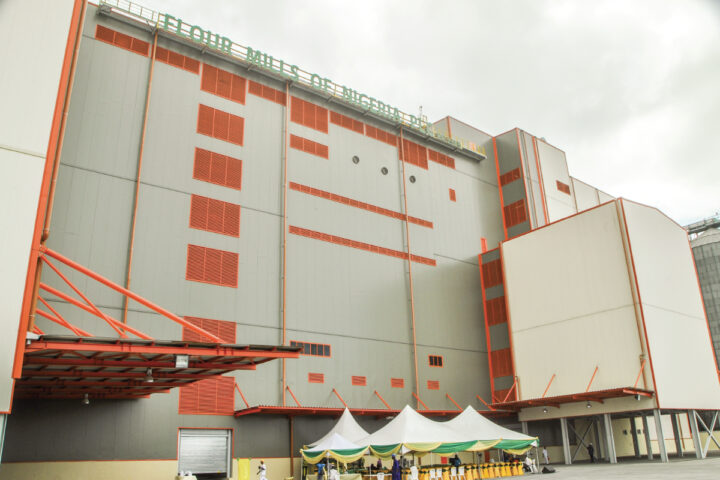BY MONSURU TOLANI
Decades before Nigeria first discovered oil in the Oloibiri area of modern-day Bayelsa state in 1956, agriculture had been the cornerstone of Nigeria’s economy. By the time the nation got independence in 1960, agriculture accounted for more than half of Nigeria’s Gross Domestic Product (GDP) and over 60 per cent of export revenue.
But over the years, the nation’s focus has shifted away from agriculture to oil, which now accounts for almost 90% of Nigeria’s foreign exchange earnings. Due to its volatility in the international market, rather than relying solely on oil revenues, development experts have maintained that there is an urgent need to diversify the sources of Nigeria’s foreign exchange earnings.
Despite its dwindling fortune, Nigeria’s agricultural potential remains high. With 82 million hectares of arable land, less than half of which has been cultivated so far, the agricultural value chain and its ripple effect on the food industry remain significant. It’s in the light of this development that analysts are paying careful attention to investment decisions within the agriculture and food sub-sector.
Advertisement
Enter Flour Millers
Last month, when Flour Mills of Nigeria Plc. (“FMN”) announced that it had obtained all requisite regulatory approvals to acquire a 71.69% stake in Honeywell Flour Mills Plc. (“HFMP”), formerly a portfolio company of Honeywell Group, stakeholders within the industry were ecstatic about the development. The company also announced a 5.06% stake in HFMP held by First Bank of Nigeria Limited (“FirstBank”), confirming that the transaction has been consummated by the parties.
The decision, to be sure, didn’t come to analysts and stakeholders as a surprise.
In November 2021, the two flour milling companies recorded a combined increase of N39bn (33.53 per cent) in their market capitalization when they first announced the signing of an agreement for the proposed combination of FMN and Honeywell Flour Mills.
Advertisement
FMN’s market cap increased to N123.01bn from N106.61bn on the first trading day of last year as its share price rose by 15.39 per cent to N30 per share from N26 per share. Honeywell, on its part, saw its market value jump to N32.12bn from N9.52bn earlier in January as its share price ballooned by 237.5 per cent to N9.52 per share from N1.2 per share.
The enthusiasm shown by stockbrokers and other market stakeholders speaks to the potential benefits of the acquisition deal and what the future portends for Nigeria’s largest flour milling company.
Promoting Backward Integration
A major highlight of the acquisition is that Flour Mills of Nigeria is now better positioned to promote backward integration and boost the local capacity of Nigerian suppliers and farmers.
Advertisement
The most biting effect of the Coronavirus pandemic on the global economy reflects in the vulnerability of countries and companies that rely heavily on raw materials sourced from other countries. The pandemic also exposed the folly of companies that lack local support in terms of backward integration. Due to the disruption in global supply, companies have had to return to local capacity for operation and productivity, in order to bridge the supply gap.
But despite the turbulence of the pandemic, a few companies had it less challenging due to existing backward integration strategies.
For instance, as far back as 2014, Honeywell Flour Mills Plc had announced that it invested N1 billion in the upgrade of its mills for increased cassava flour inclusion as a means of boosting the government’s transformation agenda in agriculture. The cassava inclusion policy required flour millers in Nigeria to include a minimum of 20 per cent cassava flour in wheat flour meant for the baking of bread and the production of other confectioneries.
On its part, Flour mills of Nigeria Plc has been cultivating a sugar plantation to supply mills. In May 2021, the company said it is expanding its sugar backward integration programme (BIP) with the acquisition of 20,450 hectares of land in Nasarawa. The project was estimated to cost at least $300 million.
Advertisement
With the acquisition of a majority stake in Honeywell by Flour Mill, the milling company is far better positioned to deepen its backward integration policy and boost local capacity.
Job Creation
Advertisement
A major highlight of the backward integration policy is the opportunity it creates for new creations within the value chain.
In effect, the acquisition of HFMP by FMN is expected to combine two businesses with shared goals and create a more resilient national champion for Nigeria in the foods industry, ensuring long-term job creation and food security. With a combined track record of 85 years, the companies are set to deliver strongly on their set goals.
Advertisement
The acquisition is equally expected to bring together two trusted and entrenched brands, creating a single entity that is better positioned to benefit the growing Nigerian population and leverage opportunities stemming from the AfCFTA.
In its last report, the National Bureau of Statistics reported that Nigeria’s unemployment rate rose to 33.3 per cent, translating to some 23.2 million people, the highest in at least 13 years.
Advertisement
In effect, there is an urgent need to bridge the unemployment gap and there is so much that companies like FMN can do to create opportunities through its backward integration policies.
With Nigeria’s huge market size and its growing population, continued investment in the business by the acquisition of HFMP will further enable FMN to be a crucial provider of the nation’s and indeed the continent’s food needs.
Tolani, a policy analyst, writes from Lagos.
Add a comment






